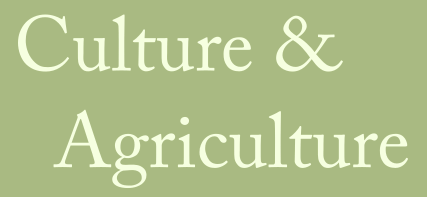Interview with Emily McKee: Entrepreneurial Treadmills and the Scalar Challenges of Sustainable Agriculture
Discussing marketing and partnership opportunities for heritage grains during a MOSES Field Day at Hazzard Free Farm
Written by Gregory Kohler
This interview is part of CAFE’s series of interviews with authors of past CAFE articles. By conversing with authors about the ways their article came about, the challenges they faced in the research and/or writing process, and the ways the issue the article addresses has changed or shifted since publication we aim to provide a space for more informal discussion of the issues human/environment scholars face in research and writing while learning about how specific issues have changes in recent years. Interviews are conducted by CAFE’s editorial assistant, Emma McDonell, and you can direct any questions about the series to her at ekmcdone@iu.edu.
This interview is with Emily McKee, who wrote “It’s the Amazon World: Small-scale Farmers on an Entrepreneurial Treadmill”
1. What is your concept of the “entrepreneurial treadmill” and how does it differ from the agricultural treadmill we’re accustomed to hearing about?
The “agricultural treadmill” describes how commodity crop farmers are compelled by broader economic and agricultural trends to intensify their operations. Facing thin profit margins, farmers must consistently increase acreage and investments in new technologies and inputs to stay afloat as competitors’ crop yields rise. Smaller-scale farmers wanting to avoid that treadmill opt instead for lower yields of higher-value crops. This provides farmers more freedom to tailor growing practices towards high quality and other ecological and social goals. But a food system politically and economically designed for industrial agriculture pushes these farmers onto an “entrepreneurial treadmill.” Without the ready markets of commodity crops, farmers face steep marketing and distribution hurdles to reach customers. To stay relevant in a marketplace not built for them, farmers must continually invest in education and outreach (about sustainable agriculture, CSA, etc.), innovate social media campaigns, and meet rising expectations for customization and speedy delivery fueled by the age of e-commerce.
2. Is this a new phenomenon? If so, why has it emerged in recent years?
In one sense, this treadmill is as old as small businesses and market competition. It’s nothing new for small-scale farmers to wear many hats. But the popularity of local, organic, and artisanal foods brought qualitatively different competition. As large, technologically sophisticated, and well-capitalized competitors offer these foods, they stretch and dilute the meanings of labels that have given high value to small-scale farmers’ products. To protect these labels’ value farmers try ever more innovative and intensive marketing, outreach, and education about what constitutes local and sustainable food. In addition, the same technological advancements that help Facebook to predict which ads you’ll like and Amazon to deliver “field fresh” kale to your door, allow distant corporations to approximate the personalization that used to be the domain of direct market farms. All this quickens pace of the entrepreneurial treadmill.
3. How does your recent CAFE article fit into a broader research agenda?
This research is part of a broader commitment to using anthropology to foster vibrant and resilient food systems. For several years, I have worked with small-scale, mostly direct market farmers to understand the challenges and opportunities they face. Through collaborative research design with these producers, I am focusing upcoming research on investigating opportunities for aggregation and distribution that may help small-scale farmers bridge the gap between the scale at which they farm (which allows them to maintain the agricultural practices they value) and the scale at which our current food distribution systems operate.
4. What led you to inquire about these particular issues?
Since taking up anthropology, I’ve been invested in building nuanced understandings of how power relations play out in our everyday lives. In particular, how do we become political actors through our basic dwelling practices—claiming land, using water, and growing food? This project has been a welcome opportunity to combine these scholarly questions and anthropological methods that I’ve been developing elsewhere so far with the agricultural landscape I live in. We are losing the middle in U.S. agriculture, and while the corn and soybean fields of the Midwest make the dominance of industrial agriculture readily apparent, this is also an interesting site of innovations in local and regional food systems.
5. What do you see as the main challenges to sustainable agriculture in the US and what can anthropological research reveal about a path forward?
One challenge is the lopsidedness of the scale at which food is produced, distributed, and marketed. Existing institutions, public policies, tax incentives, and consumer expectations all favor the industrial scale. And sustainable practices don’t work well at this scale. Second, too many ecological, economic, and social costs are externalized from the prices we pay for food. Both factors put farmers using sustainable practices at a real disadvantage in the marketplace. One of anthropology’s strengths is in understanding relationships. We need empirically grounded and fully peopled investigations of how different policy decisions, individual choices, cultural norms, and economic interests shape our food systems. Highlighting these relationships that bring us our food can help eaters, as a broader public, hold ourselves more accountable to each other.
Participants learn about pasture-raised laying hens during an In Her Boots workshop at Radical Root Farm
Emily McKee is an Assistant Professor at Northern Illinois University in the Department of Anthropology and the Institute for the Study of the Environment, Sustainability, and Energy. Specializing in environmental and Middle East anthropology, with a focus on political ecology, she conducts research in Israel, Palestine, Jordan, and the United States. She is the author of Dwelling in Conflict: Negev Landscapes and the Boundaries of Belonging and journal articles in various venues, including Current Anthropology, IJMES, Antipode, and Nomadic Peoples.


